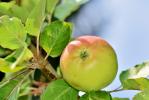H2020 INTERCOME Project: International commercialization of innovative products based on microalgae
- Type Project
- Status Filled
- Execution 2016 -2018
- Assigned Budget 1.698.506,43 €
- Scope Europeo
- Main source of financing Horizon 2020
- Project website INTERCOME
- WP1. Project Management:
a. Administrative matters: filing of documents for cost justification, recording of hours implemented by staff within the framework of the project, reports on deliveries issued on time. b. Definition of mitigation measures for identified risks, updating of the risk register. c. Scheduling of meeting minutes (9) to coordinate stakeholders and ensure compliance with project deadlines (tasks and deliverables). d. Contracting: strengthening of the commercial department, administrative department, business development department, quality and compliance department, and maintenance (still in progress). e. Communication with the CE Project Officer.
- WP2. Design, Implementation, Start-up and Operation:
a. Equipment budget b. Negotiation with equipment suppliers c. Equipment delivery d. Equipment acquisition: report on the purchased/installed equipment in relation to its function within the project objectives e. Start-up and Operation: detailed report of the entire process, including cultivation, harvesting and the process required to obtain the final products, for each strain f. Maintenance and operation protocols.
- WP3. Certification, quality assurance, and testing:
a. Certifications: Compliance with REACH and CAAE (Andalusian Committee for Organic Agriculture) obtained for the AgriAlgae® product (before project start, audit renewal approved); contact established with ECOCERT for the certification of other final products and biomass; future implementation of HACCP and ISO 22000 (ongoing, to be implemented in Q1 2019); ISO 9001 and ISO 140001 granted during INTERCOME. b. Trials at AgriAlgae: IMIDRA (Madrid Institute for Rural Development) has already conducted trials on watermelon (3rd consecutive year, 2016-2018), tomato, pepper, and vines (two years, 2017 and 2018); University of Córdoba agricultural trials on olive trees (2017 and 2018); customer/distributor validation trials on different crops. AlgaeCare trials: enzymatic trial on active ingredients (anti-aging, anti-wrinkle, depigmenting) performed by InVitroTecnia with very promising results; proliferation and cytotoxicity tests will be outsourced to COBIOSA. d. AlgaeFood trials: nutritional analysis, allergen analysis, client-customer-partner analysis and evaluations. e. AlgaePiscis trials: University of Santiago de Compostela, University of Thessaly, client trials/validation.
- WP4. Dissemination, communication and marketing activities:
a. Launch of the project website (www.intercome.eu). b. Dissemination through the corporate and AgriAlgae websites (www.algaenergy.es/en and www.agrialgae.com). c. Scheduled dissemination plan and timeline. d. Dissemination through specific channels: i. Trade fairs, technical days, congresses, exhibitions and networking events ii. EU project events iii. Higher education events iv. Social media (twitter @INTERCOME_AE and corporate accounts: LinkedIn, Twitter, Facebook and YouTube) v. Press releases vi. Meetings with potential clients e. Marketing and commercialization strategy: i. AgriAlgae: focus on internationalization, specialized media strategy and delivery of commercial documents ii. AlgaeCare: agreement with formulator (ongoing), marketing strategy through large cosmetics and dermopharmaceutical companies, marketing through own brand (pending) iii. AlgaeFood: industrial clients (addition of raw biomass/extracts to food matrices), own brand through specialized portals iv. AlgaePiscis: end users (significant trade barriers, search for optimized strains) f. Monitoring of the operating plan: i. New CRM program installed for the Sales Department ii. Business Development Department: Internationalization, Asian markets demand added value products, NPK fertilizer companies demand higher added value products, mandatory HAPCC and REACH processes (fulfilled), monitoring of the new EU directive on biostimulants.
Microalgae are an inexhaustible source of proteins, lipids, pigments, and carbohydrates, among others. They find potential commercial applications in various sectors of economic activity. Furthermore, considering that microalgae are the most efficient natural system for capturing CO2, are highly productive, and do not compete with fertile land, they have the potential to simultaneously contribute to alleviating the major crises facing humanity: environmental sustainability, energy efficiency, and food security.
AlgaEnergy, a well-established Spanish biotechnology SME, identified this potential. Since its inception, it has served as a vehicle for consolidating scientific knowledge of microalgae in Spain, a recognized center in the field that was previously scattered across universities. Leveraging this as a platform, it has invested in generating greater R&D to scale up processes and develop market-ready products, so that achievements in the laboratory phase also reach society.
In this context, AlgaEnergy recently reached semi-industrial scale (TRL7) with the start of the first phase of operations at its semi-industrial plant in southern Spain, which captures real flue gas emissions directly from the second largest combined cycle plant in Europe, a global milestone. Therefore, AlgaEnergy is ready to shift its technology toward commercializing its already commercially viable products. The international commercialization of innovative microalgae-based products (INTERCOME, the second phase of the SME Instrument ALGAEPRINT project) is based on the commercialization necessary to make AlgaEnergy financially autonomous, following a multi-million-dollar investment and eight years of applied R&D effort.
The project's objective is to validate the process in a real-world environment, developing AlgaEnergy's TRL7 to TRL9 production facilities, overcoming current barriers to commercializing its production, associated with the ability to guarantee a stable supply with the installed equipment. Essentially, the project's goal is to convert a demonstration production plant into a commercial industrial facility, emerging as the European flagship for microalgae production facilities.
Microalgae are an inexhaustible source of proteins, lipids, pigments, vitamins, and carbohydrates, among others. Therefore, they find potential commercial applications in various sectors of economic activity. Some are already commercially viable, such as aquaculture, agriculture, human nutrition, and cosmetics, while others still require further R&D development, such as bioenergy and the pharmaceutical industry.
Furthermore, considering that microalgae are the most efficient natural CO2 capture system, are highly productive, and do not compete with fertile land, they have the potential to simultaneously contribute to alleviating the major crises facing humanity: environmental sustainability, energy efficiency, and food security. AlgaEnergy, a well-established Spanish biotechnology-based SME, did identify this potential.
Since its creation, it has served as a vehicle to consolidate existing knowledge in the scientific field of microalgae in Spain—a recognized international hub in the field—which was previously scattered across universities. Using it as a springboard, it has been investing in generating more R&D to scale up processes and develop products ready for commercialization, so that achievements in the laboratory phase also reach society.
As part of this effort, AlgaEnergy has recently achieved semi-industrial scale (TRL 7) with the start of operations of the first phase of its semi-industrial plant in southern Spain. This plant captures real flue gas emissions directly from Europe's second-largest combined-cycle power plant, a world first.
Therefore, AlgaEnergy is now ready to shift its technology toward commercialization of its already commercially viable products. The international commercialization of innovative products based on MicroalgaE (INTERCOME – second phase of the SME Instrument ALGAEPRINT project) is based on the commercial orientation needed to provide AlgaEnergy with financial autonomy, millions of dollars in resources, and eight years of effort invested in applied R&D.
Impact on SMEs:
- Turnover: end of 2016 (121,330.01 euros), end of 2017 (approximately 560,000 euros), end of 2018 (approximately 1.5 million euros)
- Employees: GA firm (mid-2016, 13 employees), late 2016 (21 employees), 2017 (33 employees), 2018 (43 employees)
Progress beyond the state of the art: results achieved so far
AgriAlgae:
- Registration in foreign markets
- - Next steps: focus on internationalization (Project Victoria - International Expansion - and Project Imperiale - Italy)
AlgaeCare:
- Branding (with LACIA Agency) and Marketing (with PERSE purchasing center)
AlgaeFood:
- Industrial customers already ordering biomass/extracts
- HACPP ISO22000 processes in progress
AlgaePisces:
- Product functionality already validated
- Difficulties encountered: Skepticism among aquaculture technicians, conservation improvements to be implemented.
- Next steps: conservation trials, optimized strains to reduce skepticism, internationalization focus targeting France and Greece.
- ALGAENERGY SA







